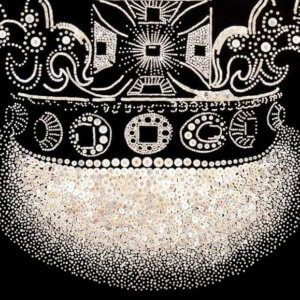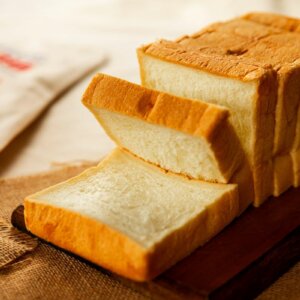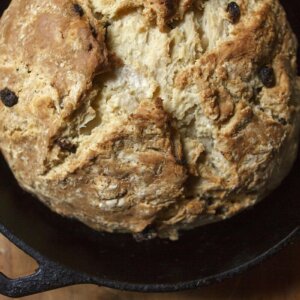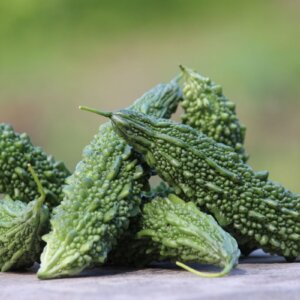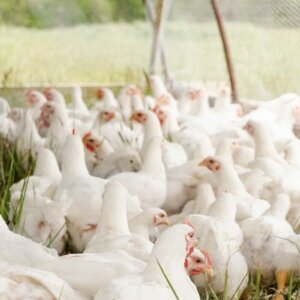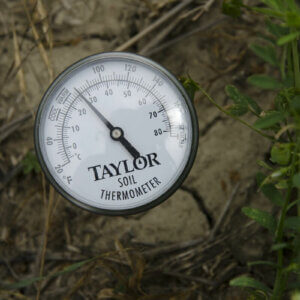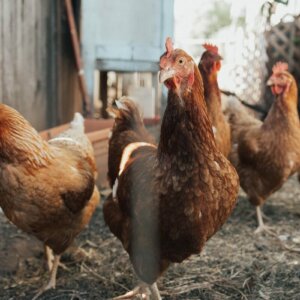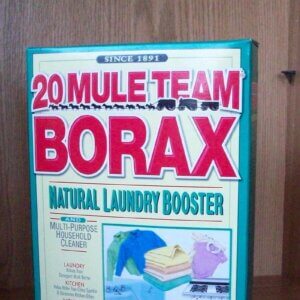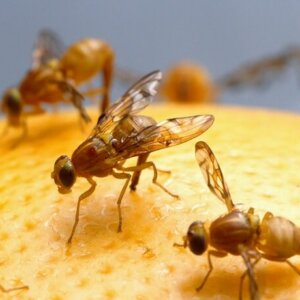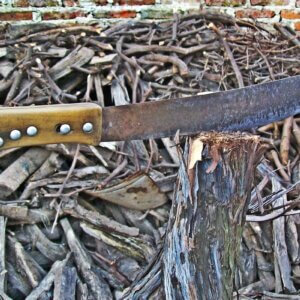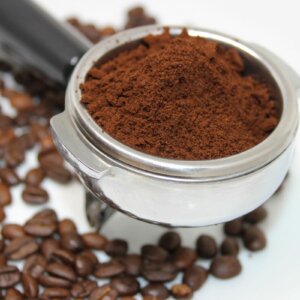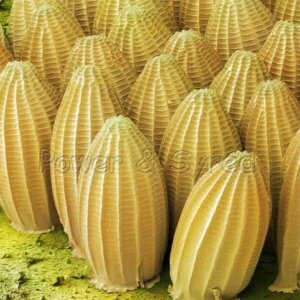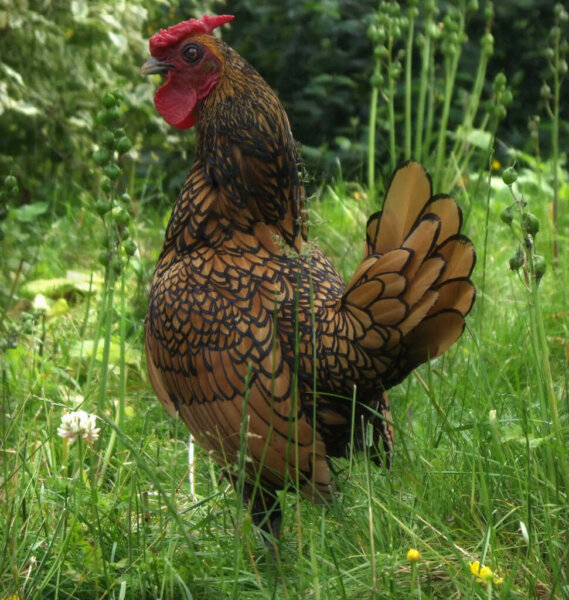
- Purpose: Ornamental
- Eggs: White
- Egg Size: Small
- Color: Black And White, Golden and Black
- Comb Type: Rose Comb
The brainchild of 19th- century agricultural innovator Sir John Saunders Sebright, these tiny chickens are a true ornamental bantam variety with no standard-size equivalent. With 30 years put into their development, this breed is beautiful to behold and unique to see. Both males and females display the same hen-feathered, laced plumage!
The unmistakable laced feathering of the Sebright chicken was also used to produce the same patterning on other modern laced birds, such as the golden-laced and silver-laced Wyandotte.
One of the most popular bantam breeds, these chickens have a loyal and ardent following. They are the first breed to have its own club.
Description
With large, dark eyes, a short back, a bitty rose comb, a sharply upright tail that contrast with their downward-pointing wings, and a stature to makes you say, “Awww,” there’s a lot to like when you’re looking at a jaunty little Sebright bird.
Their notable plumage is certainly worth appreciating, too. With bright white or blazing golden feathers ringed about with jet black coloring, each individual feather looks like it has been carefully dipped in ink around the edges.
Small birds are also easier on your pocketbook when it comes to feed. Though they eat the same food as larger birds, bantams like the Sebright don’t eat as much of it.
They’re a Bit of a Diva
Jon Sebright tried to develop what he thought of as the visually perfect chicken. He dedicated 30 years of breeding to perfecting the breed’s feather color, shape, and body proportions. Sebright didn’t concern himself with hardiness, meat quantities, or egg production.
As a result, there is little this breed can offer to the subsistence farmer in terms of practical use. They are neither heat-hardy nor cold-hardy, are especially susceptible to Marek’s disease, and are never inclined to brood their own rarely-appearing eggs. Like any self-concerned diva, their fabulousness comes with a long list of needs!
Their tiny, light bodies are paired with a set of wings that can have them fly for 30 feet or more, so be aware of the environment you bring them to. With a predisposition to be flighty, particularly if they were not handled much as chicks, you may find that your gorgeous birds are very difficult to catch and keep contained.
What’s the Yield?
Sebrights make other bantam chickens look big. With hens at a minute 18 ounces and cockerels at 22 ounces, they may be confused with a fancy pigeon at first glance. Though they are so small, some sources report that they are big on flavor — just obviously not on portion sizes.
Many don’t see a point in trying to use a Sebright for meat or eggs — some strains of the breed only produce 12 tiny, white eggs a year, if that! That was never the intent for this pint-sized poultry anyway. They are at their best when they can flaunt their stuff across a green stretch of grass, glitzing up your chicken coop and turning heads wherever they go.
As far as choosing one for a pet chicken, you can hardly find a bird that is more of a novelty! Perch a well-cared for, healthy bird on your shoulder, and you may enjoy its company for 10 years or more.
Photos of Sebright Chickens
Resources
- Sebright Bantam, My Pet Chicken
- Sebright Bantam, Purely Poultry
- 5 Reasons to Love Sebright Chickens, Backyard Chicken Coops
- Sebright Bantams, Poultry Keeper
- Sebrights, Dare 2 Dream Farms
- Sebright, BackYard Chicken
- Sebright Chicken, The Livestock Conservancy
- Sebright Bantams, Feathersite
- The Delightful Sebright Chicken, Countryside Daily
- Sebrights, The Poultry Guide
- The Sebright Chicken is a breed named for Sir John Saunders Sebright, Raising Chickens
- The Sebright Club



